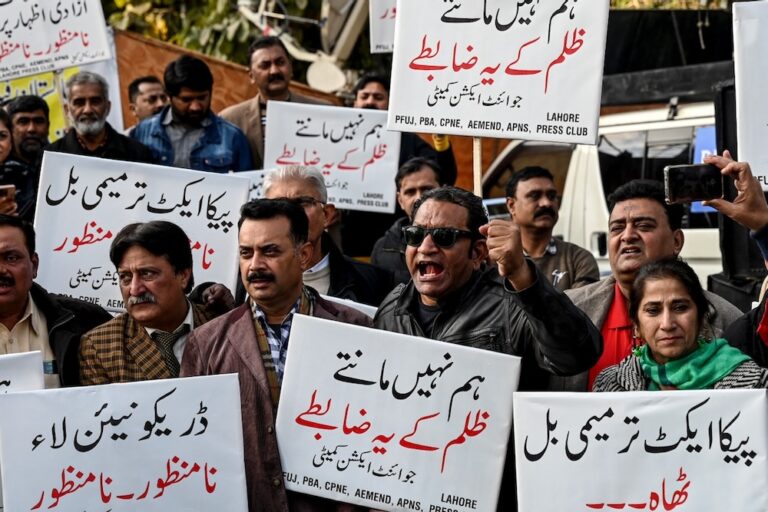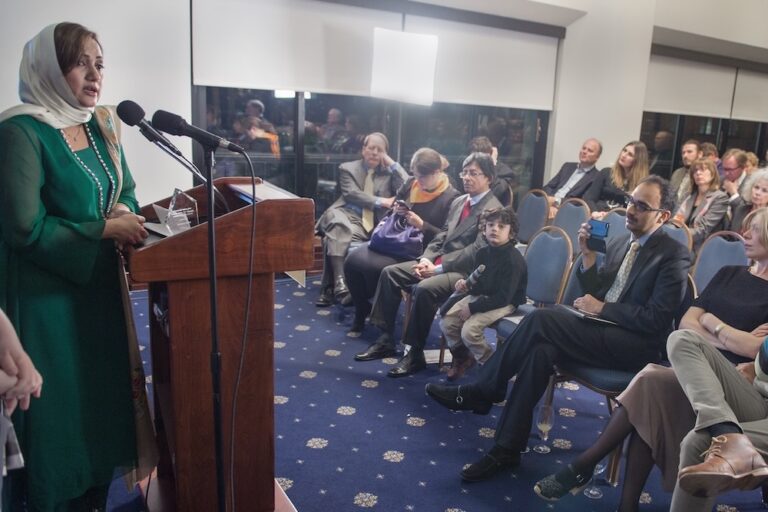Twitter's initial decision to remove content was criticised by a wide swath of civil society, from advocacy group Bolo Bhi in Pakistan to porn actress Belle Knox, whose photos were among the blocked content.
By Eva Galperin and Jillian York
Last month, we harshly criticized Twitter for responding to questionable legal orders from Russia and Pakistan to take down content. We argued that the company that once called itself “the free speech wing of the free speech party” had caved in the midst of corporate expansion.
We are therefore pleased to see that Twitter has reversed course on its approach to Pakistan. As the New York Times reported, Twitter explained its decision in a statement issued to Chilling Effects. The statement reads:
We always strive to make the best, most informed decisions we can when we’re compelled to reactively withhold identified content in specific jurisdictions around the world. On May 18, 2014, we made an initial decision to withhold content in Pakistan based on information provided to us by the Pakistan Telecommunication Authority. Consistent with our longstanding policies we provided notice to all of the affected account holders and published the actioned takedown requests on Chilling Effects to maximize transparency regarding our decision. We have reexamined the requests and, in the absence of additional clarifying information from Pakistani authorities, have determined that restoration of the previously withheld content is warranted. The content is now available again in Pakistan.
The initial decision to remove content was criticized by a wide swath of civil society, from advocacy group Bolo Bhi in Pakistan to porn actress Belle Knox, whose photos were among the blocked content.
In response to critics who call the blocking of content censorship, Twitter points out that it is one of the few Internet companies that make public the takedown requests they receive. Being transparent about censorship is a vital first step in the struggle for free expression, but Twitter can and should do more. If Twitter wants to be a defender of free expression, it can and should refuse government censorship requests in countries where it is not subject to that country’s censorious laws.
In Russia, Twitter has no offices and no employees. Despite being an entity outside Russian jurisdiction, Twitter removed the account belonging to “Right Sector” (Pravy Sektor) – the Ukrainian nationalist political party characterized by the Russian government as Neo-Nazi fascists – remains censored. Twitter also continues to honor Russian telecom regulator Rozkomnadzor’s requests to take down accounts related to drug use and suicide. We expect to see many more requests from Russia for the censorship of overtly political content when an Orwellian set of laws restricting the Internet and bloggers goes into effect this August.
If Twitter wants to be a leader in honoring freedom of expression and a champion for users, it needs to think seriously about revising its censorship policies. Right now, policy dictates that Twitter will respond to requests from “authorized parties,” including private individuals or organizations, if the content they submit (by mail or fax) is deemed to be illegal. In one instance, Twitter responded not to an official legal order, but to a letter from a French student organization.
This policy creates more opportunities for censorship than those afforded by similar companies, most of which do not offer such a channel. Free speech would better be served by Twitter only responding when legally necessary.
While we commend Twitter on making the right choice in Pakistan, we’ll be keeping a close eye on how the company responds to legal requests in the future.


